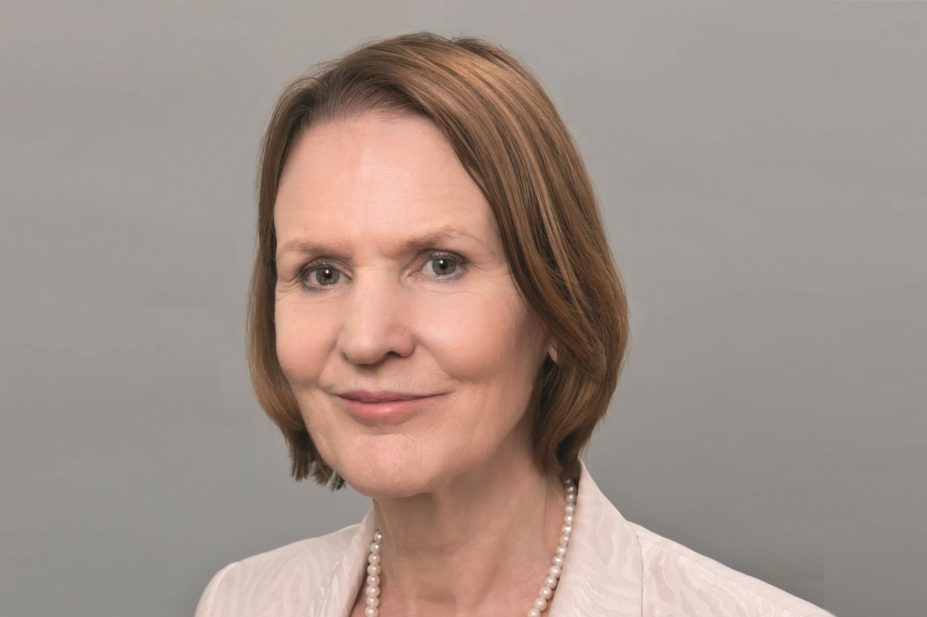
Pharmaceutical Services Negotiating Committee (PSNC)
The Pharmaceutical Services Negotiating Committee (PSNC) has outlined its plans to respond to the government’s imposition of a funding cut to community pharmacy, including a potential legal challenge, but has advised against strike action.
Sue Sharpe, chief executive of the PSNC, which represents pharmacy contractors in England, presented the possible actions in a speech to the annual conference of local pharmaceutical committees (LPCs) in London on 2 November 2016, and offered LPCs advice on how they should respond.
Sharpe told the conference that following the government’s decision to impose the cuts, the PSNC had taken legal advice and “will be doing whatever we can and whatever is wise to challenge this policy”.
The cuts were formally announced by pharmacy minister David Mowat to the House of Commons on 20 October 2016 confirming that community pharmacy funding will be cut by 4% in 2016–2017 to £2.687bn, and by a further 3.4% in 2017–2018 to £2.592bn. From December 2016, establishment payments, worth around £25,000 per year, will be cut by 20% compared with 2015–2016 levels. In addition, a new single activity fee will be introduced plus a new pharmacy access scheme to protect the viability of some pharmacies.
Sharpe told the meeting: “The competitive and diverse nature of the sector means that we have never been able to command strike action and personally I believe it would be very unwise” because community pharmacy’s greatest supporters – local communities – would suffer.
“It happened in Ireland a few years ago,” she added. “It was a disaster.”
Sharpe pointed out that the move to a single activity fee based on dispensing, at a time when the government is emphasising that it wants community pharmacy to move away from a focus on dispensing and become more service orientated, was concerning because it suggested “that they are seeking to strip down the service to a commoditised supply service”.
“Tucked at the very end of their decision is a statement that they want to work with us to develop separate terms of service and separate payments for distance selling pharmacies,” she said, highlighting that “the likely end point of this would be a discounted supply service”.
As she introduced Mowat at the start of the conference, Sharpe told him that words of encouragement in the December 2015 letter from the Department of Health to the PSNC about a future based on clinical services now “ring hollow”, prompting applause.
“The sector and its representatives here today want to hear something far more tangible to give them confidence in the future. A standard maximally available minor ailments service can only make good sense for a beleaguered primary care and the NHS,” she said.
“Encouraging clinical commissioning groups (CCGs) to introduce confusing varying local schemes makes frankly no sense whatsoever. We need a national service so we can change patients’ behaviours, we can get people to use community pharmacies and help the NHS survive the threats it faces today.”
Mowat responded: “There is no ambiguity around our intention to move your profession, the community pharmacy industry, into a future that is much more shaped around services and a model that isn’t based on dispensing alone.”
He added that the NHS now had an organisational structure that had CCGs at the heart of NHS commissioning, so pharmacies needed to start building relationships with them. “This is the reality of what is out there, and CCGs are the fundamental commissioning block within the NHS and that will be how it stays,” he said.
The conference later unanimously agreed that the PSNC should write to Mowat and ask him to request that each chief officer of a CCG put in place plans to develop pharmacy services, after pharmacists in some areas reported that CCGs seemed unwilling to engage with or commission services from community pharmacy.
Sharpe warned LPCs that they must not under-price services, such as the minor ailments scheme, in local negotiations with CGGs. “It would be better to walk away than to settle on prices that do not reflect properly the costs of providing services,” she said. “We need to make sure that we properly price the level of professional pharmacist involvement.”
While much of the campaign against the cuts involved highlighting the risk of community pharmacy closures, Sharpe said: “The closures will not happen overnight because pharmacies will struggle to survive and try to manage on a reduced budget and hope that their nearest neighbour down the road goes to the wall before they do.” Even when pharmacies become unviable, they will not close quickly, she pointed out, because the businesses will be tied into leases and have loyalty to staff, patients and customers.
But Sharpe added that community pharmacy businesses will now start looking at how they can manage the cuts, including whether they will reduce services or limit opening hours.
Community pharmacies need to do all they can to achieve the new quality payments, Sharpe emphasised, because they “introduce the opportunity for a flat rate payment irrespective of the size of a pharmacy business”.
“It is a way in which we can support contractors who are facing the loss of the establishment payments,” she said. “We believe that most of those requirements are achievable quite simply by most pharmacies.”

